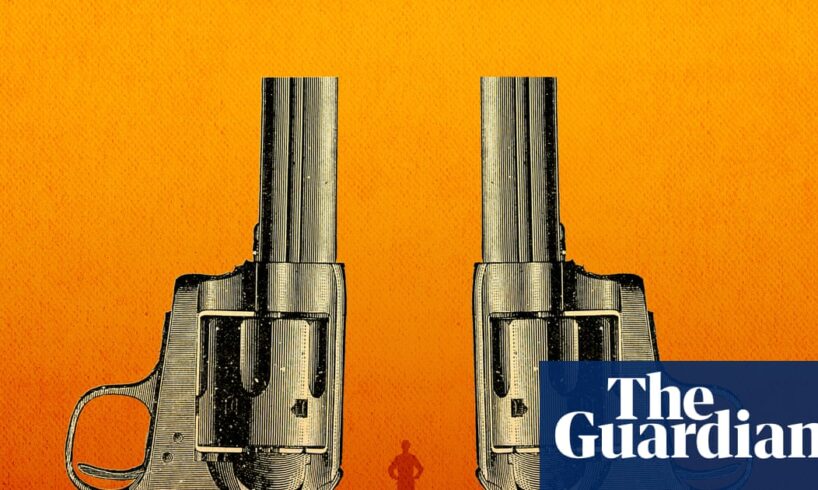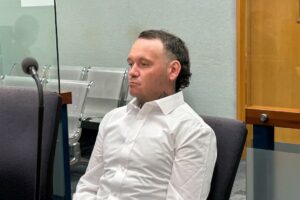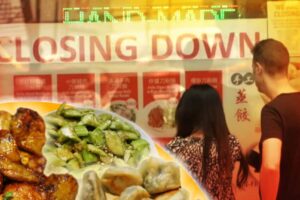
In 2024, the suspected Porepunkah gunman Dezi Freeman told the Victorian supreme court his firearm licence had been taken.
“I had my firearms licences cancelled and lost my club membership,” Freeman wrote in a submission. In the hearing, he sought to challenge the cancellation of his driver’s licence.
Freeman, who has described himself as a photographer and “homeless disability pensioner”, was disqualified from driving for two years after refusing to submit to a drug test and for using a mobile phone while driving.
He described the serious hardship caused to himself and his family by the loss of his driver’s licence, and claimed there had been “years of homelessness and being constantly attacked by police”.
“The stress, hardships, injustice, misery and poverty exacerbated by not being able to drive affects us all,” Freeman wrote. His application for judicial review was dismissed.
Sign up: AU Breaking News email
Freeman has a history of run-ins with law enforcement and has shared in the past some forms of pseudo-legal beliefs, where adherents make arguments that deny the authority of the state.
Police confirmed on Friday that Freeman’s gun licence remained revoked at the time he allegedly killed two officers and injured another at his high country property on Tuesday.
Pseudo-legal beliefs grounds for cancellation
As part of its investigation into gun control, Guardian Australia has found pseudo-legal ideas are an issue in firearm disputes across the country, with police in some cases citing “sovereign citizen” beliefs as grounds to cancel licences and remove weapons.
Freeman’s disdain for authority appears to be extreme, but at the other end of the spectrum, police have raised concerns about the use of sovereign citizen arguments for several years.
One Queensland man’s firearm licence was cancelled after police received correspondence indicating he held “sovereign citizen beliefs”, including that “the laws in force in Queensland” did not apply to him.
The man had attempted to arrest a policeman and filed “voluminous” material appealing against his licence revocation, including claims that a certificate of birth registration was designed “to fraudulently turn a child into property of the Reserve Bank”.
In another Queensland case, a woman caught speeding used language in a letter to police that “indicated she held sovereign citizen ideologies”, according to court documents.
“She effectively asserted that the Queensland police had no authority to fine her for speeding, and that she was not the named person on the infringement notice but rather her ‘strawman’ name was what appeared thereon.”
A “strawman” name is what some adherents to pseudo-law believe is created when their name is written in all capital letters on a birth certificate. They claim this identity is separate legally from their actual identity, and they use this argument to reject the authority of governments and courts.
Police then took the step of cancelling her firearm licence, but she successfully overturned the decision, admitting that her use of these arguments was misguided and wrong.
Scenes from the operation centre outside Porepunkah as part of the manhunt for self-proclaimed sovereign citizen, Dezi Freeman. Photograph: Stuart Walmsley/The Guardian
In another matter, Queensland police cancelled a man’s firearm licence on suspicion he was “an adherent to pseudo-law beliefs”, however the tribunal found there was no evidence he’d held such beliefs and found he was a fit and proper person.
It’s unclear how often pseudo-legal beliefs play a role in licence revocations across all states and territories, as police forces do not routinely report reasons for firearm licence cancellation.
‘You’re on sovereign ground’
In other cases, adherents to pseudo-legal ideologies have been able to arm themselves without a licence.
In early November 2022, police approached a property in Binnaway in NSW intending to arrest the resident in relation to an intimidation charge.
On arrival, police found a house signposted with a “sovereign land” plaque. The offender told police that he would not leave his home. “You’re on sovereign ground, you will be neutralised if you fucking hurt me, or try and do anything to me,” he said.
After a 12-hour standoff, police attempted to enter the house and the offender fired a shot at police, hitting an officer’s ballistic shield.
He was not licensed to own a firearm, but was found with a prohibited .22 calibre long rifle, another bolt-action rifle and a .410 single shot shotgun.
After eventually being arrested, the man was sentenced to six years’ prison, with the judge finding his mental health, affected by the death of his son, moderated his level of moral culpability. However, the judge noted that: “The offender maintains his sovereign citizen beliefs which often arouse tension when interacting with any branch of government or authority”.
In another case, a man affiliated with a pseudo-legal group was charged with firearm offences after a police raid found firearms and ammunition hidden inside a piano. He was also not a licensed firearm owner.
At the time of sentencing, the judge said that the group he led “promotes a sovereign citizen ideology”.
Government warned of threat posed by conspiracy theories and guns
In 2022, former Victorian Greens leader, Samantha Ratnam, secured the support of the Victorian government to establish a parliamentary inquiry into far-right extremism. While the inquiry was borne out of concerns about the rise of neo-Nazi activity, it also identified the growth of the ‘sovereign citizen’ movement during the pandemic, “in opposition to public health orders like vaccine and mask mandates and stay-at-home restrictions”.
The inquiry found violent extremism posed a risk to politicians and public figures in Victoria, with access to firearms “obtained legally or illegally” by members of far-right groups a “significant concern”.
Dezi Freeman has a history of run-ins with law enforcement and has shared in the past some forms of pseudo-legal beliefs. Photograph: Supplied
Among its 12 recommendations was to advocate for a national firearms database and review of the state Firearms Act, to expand the fit and proper person test to prevent people who are members of violent extremist groups obtaining a licence.
The government accepted the recommendation but said the law already allowed police to refuse licence applications to members of extremist groups.
Ratnam has described the response as “lacklustre”.
“The government hasn’t taken the threat seriously, they just haven’t moved with the urgency that it necessitated. We were sounding the alarm because we could see it happening, we saw some of the thinking that was coming out of these groups first-hand,” she said.
Her successor, Ellen Sandell, urged the government to revisit the recommendation.
“The experts have given us the roadmap for how to stop the rise of far-right extremism and conspiracy theorists – now the Labor government must act,” Sandell said.
However, the Victorian government’s position hasn’t changed.
“Victoria has strong laws in relation to gun ownership and storage,” a government spokesperson said.
They said there were early intervention schemes across prisons and community corrections services to combat signs of radicalisation, as well as programs in schools to address racism and racial discrimination.





